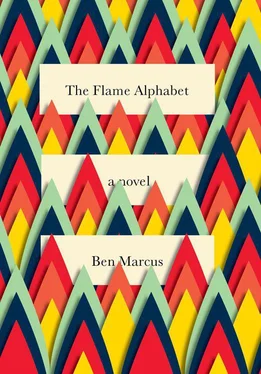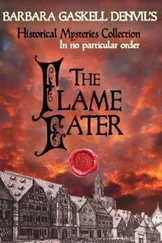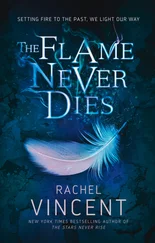So yesterday I cut and gathered my wood, then left it piled in its fine pyramid, and stealthed downhill to lie in wait for assets.
Sometimes you see them on the grass ramp that once featured children playing before school. Sometimes they wander right up to you and raise their arms, actually wanting to be picked up. At such times, one obliges. One reaches down and picks them up.
I stayed too long. The light failed. No assets came, just a horse. It was untroubled and calm as it stood eating grass in a field, not even startling when a loud crack shook the sky somewhere to the east.
Ammunition does go off every now and then. It sounded like a house breaking in half.
When I woke it was dark, and I broke my own rule. Esther would be alone all night in the hut if I didn’t return. I had to get back, even if that meant hours of blind groping.
Behind the hut I’ve dug a fire pit, where I cook the occasional brittle lobe, sear a cake of jam, and bring heat by venting into my hut so I can withstand the cold nights. The pit I fill with wood in the mornings, and then again late at night. Sometimes in the middle of the night, when I ache to pee, I wrap up in one of the buntings and stuff more branches in the hole.
Each week I dig out the ash and carry it by wheelbarrow to the softeries, out of sight of our old neighborhood, where the fencing starts, under the shadow of the children’s loudspeakers.
It’s Aesop’s fables they have playing from them now, but the speakers have fallen into terrible repair, warping the speech so badly that it no longer spreads the poison. If anything it sounds pretty, some low-toned singing as if from deep underwater.
Living here is not ideal, no matter how Claire and I used to dream of it. When I was alone I could endure the conditions. With Esther commanding the lone cot now, even my seat at the hole, where years ago I sat with Claire and clutched the orange cable, digging my fingers deep into the flesh of the listener, is too crowded.
Oh, I’m not forgetting that LeBov went down this same hole once. Or maybe sometimes I am.
On windless days I can hear Esther’s breath, wheezing from her lungs as if she were straining to inflate a balloon. Sometimes the wheezing stops and it’s too quiet in here. I look at the cloth wall that divides us and wonder if this is it. If only one of us gets to breathe, it had better not be me. Suspense left my life a long time ago, but now it has returned. I do not care for it.
It was so dark last night, I could not see my hand in front of my face as I tried to make my way back to Esther. Navigation by starlight was impossible because there were no stars. They were just too far away. Everything was. Had there been stars I could see, it would have meant nothing anyway. Above me would stand the rebuke of an information system I have failed to learn, a map written in one of those languages unsuited to describing anything but itself. Maybe all languages are like this.
I knew I had an incline to gain, but I did not know when to break from it to find the lateral path. Throughout the night I descended and climbed, then traversed along what was not the path. It was never the path. Too often I fetched up in a tangle of trees, probing a clammy flesh beneath the bark. Once my hand worried into what felt like soup, but this was waist-high, and I yanked it free when it started to burn.
I stumbled, fell, sometimes stayed down to rest, breathing in the fine iron smell of the mud, which dried over my face and brought the whole world into silence.
My absence tonight should not matter. Esther preferred me gone from the hut anyway. She’d not even try the soup I’d brew for her, and the bread might only get torn to pieces and scattered to the floor, tossed away angrily as if she were a toddler. Even if I got home before bedtime, when the lamp was snuffed out and the jar of water was replenished on the stone post, I’d be up and down all night anyway, awake on the floor listening to the rough struggle of Esther’s breath behind the cloth.
My absence should not matter. I was certain of that. Esther would be fine. Better to stay out here and sleep.
I did not try again that night to push free of my place in the mud. Nor did I will myself to stop thinking of Esther, alone in the hut all night. The night was warm enough for me to make it where I was. There was no question that she would be all right there by herself. No question at all.
I would wait for daylight, what little of it I had lately been allowed. With daylight I would crawl back to our hut and there I would discover that all was perfectly well with Esther. Of this I was sure.
Three years ago I made my escape from Forsythe down the Jewish hole. For months I crept through underground mud on my way home, stopping only to listen for pursuers. The first tunnel I traversed was little wider than the orange cable I followed, and I had to work with whatever digging implements were at hand to gain my passage. At dead ends I did soundings, thumped against the earth until it shaled, and when the wall reported a promising hollowness, I worked with my fingers to bore a cavity.
It was ugly, dark work, and I grew foreign to myself, my skin like a hair-soaked stone, my face too numb to feel.
Others had come and gone before me in some of those passageways. Oh, had they. Their evidence festered along the embankment, muddied, broken, spent. Clothing frozen in dramatic postures, books, papers, shards of once-clear lobes now coated in hair. Luggage stuffed into mud holes. I shed my jumpsuit and clothed myself with the outfits of these pioneers. I found a grooming kit and hacked at the fur on my face, used one of those soft, moldable stones to scrape myself bare.
What a terrible amount of salt was already everywhere, even down below. The first layer of it was burnt. It stuck to your hands.
The books I found remained sealed by glue. Loose pages, scattered like parade scraps, had their text blackened. The broken parts of writing codes were everywhere, handicapped scripts, decipher sheets, etchings in the walls, the local efforts of people to say something to someone, to get a message across.
If people had lived down here in the tunnels, they hadn’t done it well, and they hadn’t done it for long.
As I burrowed south in the next months I took many trips to the top, whenever ladders appeared in the tunnel or some knotted rope hung down or light wriggled in from above, or, most of all, when the orange cabling, my true mapping device, detoured vertically, usually at a bulging splice in the line. I always followed it. I burst out into fields, butted against concrete slabs, emerged at the bottom of shallow ponds, punching through muck into the air.
Sometimes I even pierced into huts covering the apparent Jew holes of strangers.
Once I came up under a trapdoor that wouldn’t fully spring. When I stopped to listen, I heard footsteps, the awful pressure that fills the air when people mute their fear. Someone had rolled a bed over the door I crouched beneath, and when I finally squeezed through, no one was there. It was a damp house that people had left in a hurry. They were outside cowering, probably, petrified by the man who’d broken through their floor. The orange cable I’d followed into this hut divided into a network of the finest little wires, so delicate I could hardly see them. If it weren’t for the miniature cups of liquid the wires landed in—brass thimbles scattered over the floor, tendrils of wire dangling into them—I might not have known they were there. Their strategy of conduction was curious to me, but I dropped away and left that place in peace.
Sometimes the orange cable frayed into nothing in my hands. At its pinched-off stump were teeth marks, a black calligraphy of blood where someone had chewed it through. Around me would be nothing familiar. Even the trees had an animal smoothness to their limbs, or there’d be no trees, not even the barest spasms of grass, just pebbled terrain as far as I could see, stones covered by a fine misting of salt.
Читать дальше











